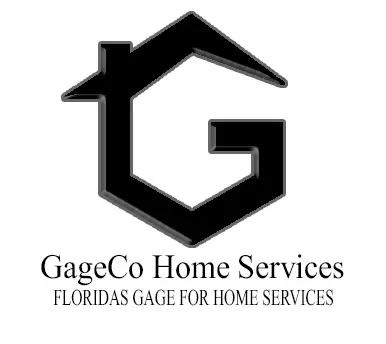Understanding Residential Demolition Costs
When it comes to any property improvement project, understanding the cost of residential demolition is crucial. This makes it easier to plan your budget and foresee potential expenses. For those needing a quick estimate, here’s a brief overview:
- Interior Wall Demolition: $0.30 – $6.40 per sq. ft.
- Room Demolition: $4 – $6 per sq. ft.
- Kitchen Demolition: $500 – $3,000
- Bathroom Demolition: $550 – $1,500
- Basement Demolition: $5,000 – $25,000
- Average Cost Per Sq. Ft.: $2 – $10
Renovations and property upgrades often require removing parts or even entire structures of your home. Whether you’re dealing with a minor interior demo or a full-scale teardown, knowing these costs helps in planning effectively. Demolition cost varies widely based on factors such as the size of the area, complexity, and any hazardous materials involved.
Before starting your project, thorough planning is indispensable. Assess the scope, consult with professionals, and allocate a realistic budget. This ensures that the demolition process proceeds smoothly, saving you time and money.

How Much Does It Cost to Demolish a House?
Demolishing a house can be a significant expense, and understanding the costs involved is crucial for effective planning. Let’s break down the costs and factors influencing the cost of residential demolition.
Average Cost to Demolish a House
The cost to demolish a house varies widely, but on average, you can expect to pay around $19,000. However, the typical range falls between $4,000 and $26,000, depending on several factors like location, house size, and complexity of the demolition.
For example, demolishing a house in California might cost between $9,000 and $16,000, while in Texas, it could be between $6,000 and $12,000. These state variations are influenced by local labor costs, permits, and other regional factors.
Demolition Cost Per Square Foot
One of the primary ways to estimate demolition costs is by square footage. Prices typically range from $4 to $12 per square foot. This cost includes tearing down the structure and removing debris.
Here’s a breakdown of what you might expect based on house size:
| Size (Square Feet) | Cost Range |
|---|---|
| 1,200 | $5,000–$20,500 |
| 1,500 | $6,500–$26,000 |
| 2,000 | $8,500–$34,500 |
| 2,500 | $10,500–$33,000 |
| 3,000 | $12,500–$52,000 |
Factors Influencing Demolition Costs
1. Size and Type of the House: Larger homes cost more to demolish. For instance, a 1,500-square-foot home might cost around $15,570, while a 2,500-square-foot home could be about $21,250.
2. Permits and Regulations: You’ll need permits for demolition, which typically cost between $100 and $450. This includes ensuring utilities like water, gas, and sewer lines are safely capped off.
3. Location: Urban areas generally have higher demolition costs compared to rural areas. For instance, tearing down a 1,500-square-foot home in a rural area might cost $6,000, whereas in a city, it could be as much as $25,500.
4. Foundation Costs: If you plan to leave the foundation in place, the cost is lower, around $3 to $8 per square foot.
5. Disposal Costs: Disposing of demolition debris can add $300 to $1,800 to your total cost. If asbestos is present, safe disposal could add $2,000.
6. Machinery: Using heavy machinery like excavators and bulldozers can cost between $250 and $600 per hour.
7. Hazardous Material Removal: If your house has hazardous materials like asbestos, removal can cost $2,000 to $6,000.
8. Unexpected Costs: Always budget an additional 10%-20% for unexpected expenses like hidden structural complexities or toxic waste.
With these factors in mind, you can better plan and budget for your demolition project.
Next, we’ll dig into the different demolition methods and their associated costs.
Factors Influencing Demolition Costs
Size and Type of the House
The size and type of your house are major factors in determining the cost of residential demolition. A small house will cost less to demolish than a larger one. Here’s a quick breakdown:
- Small House: Costs typically range from $4,000 to $10,000.
- Medium-Sized House: Expect to pay between $10,000 and $20,000.
- Large House: Costs can soar from $20,000 to $30,000 or more.
Permits and Regulations
Permits are essential for any demolition project. The cost for these permits can range from $100 to $450 depending on your local government regulations. You’ll need a detailed site plan to secure these permits.
Location
Your house’s location plays a significant role in demolition costs. Urban areas tend to be more expensive due to higher labor costs and stricter permitting requirements. Conversely, rural areas are generally less costly. Access and setup can also impact costs; tight urban spaces may require more careful planning and additional equipment.
Environmental Considerations
Environmental factors can add significant costs, ranging from $5,000 to $25,000. This includes ensuring safety measures and protecting the local ecosystem. For example, if your house is near a protected area, you might face additional regulations and costs.
Waste Disposal
Waste disposal costs can vary greatly. On average, expect to pay between $150 and $1,000. The volume of material and local disposal fees will influence this cost. The EPA has guidelines that must be followed for disposing of certain materials, which can add to your expenses.
Machinery
Heavy machinery like excavators and bulldozers are often necessary for demolition. These can cost between $250 and $600 per hour. Most contractors include machinery costs in their initial estimates, but it’s good to confirm.
Hazardous Material Removal
Removing hazardous materials such as asbestos or lead paint is costly, typically ranging from $2,000 to $6,000. Specialized hazmat professionals are required for this task to ensure safety and compliance with regulations.
Site Preparation
Site preparation involves disconnecting utilities, setting up safety barriers, and ensuring proper access. This can cost between $1,000 and $5,000. Proper preparation ensures a smooth and safe demolition process.
Unexpected Costs
Always budget an additional 10%-20% for unexpected costs. These could include hidden structural complexities or unfinded toxic waste.
Next, we’ll dig into the different demolition methods and their associated costs.
Demolition Methods and Their Costs
When it comes to demolishing a house, there are three primary methods: manual demolition, mechanical demolition, and deconstruction. Each method has its own cost structure and suitability depending on the project’s specifics.
Manual Demolition
Manual demolition involves using hand tools to tear down a structure piece by piece. This method is ideal for smaller structures or delicate work where precision is key. Workers use tools like sledgehammers, pry bars, and hammers.
- Cost: Typically ranges from $15 to $20 per hour per worker.
- Best For: Smaller structures or detailed work like removing interior walls.
- Pros: Precise and controlled.
- Cons: Time-consuming and labor-intensive.
Mechanical Demolition
Mechanical demolition uses heavy machinery like excavators and bulldozers to quickly bring down structures. This method is efficient and suitable for larger buildings.
- Cost: Generally $4 to $15 per square foot.
- Best For: Large structures or complete house demolitions.
- Pros: Fast and efficient.
- Cons: Less precise, more disruptive.
Deconstruction
Deconstruction, also known as “green demolition,” involves carefully dismantling a structure to salvage reusable materials. This method is environmentally friendly and can reduce landfill waste by up to 85%.
- Cost: Ranges from $9 to $20 per square foot.
- Best For: Projects focused on sustainability or where materials can be reused.
- Pros: Environmentally friendly, potential tax benefits from donating salvaged materials.
- Cons: Time-consuming and requires meticulous planning.

Each method has its own set of benefits and costs, making it essential to choose the one that best fits your project’s needs and budget. Next, we’ll explore the additional costs you might encounter after the demolition is complete.
Additional Costs After House Demolition
Rebuilding On-Site Cost
Once the house is demolished, the next step is often rebuilding on the same site. The cost to build a new house ranges from $124,000 to $450,000. This wide range depends on factors like the size of the house, materials used, and geographic location.
Hiring an architect can help you make the most of the existing structures, wiring, and plumbing. Architect fees for new construction planning average around $6,000. An architect can also help you determine if any parts of the old house can be preserved, potentially saving you money.
Cost to Eliminate Asbestos
If your old house contains asbestos, removing it safely is crucial. Asbestos elimination costs about $2,500 on average. The cost can be higher if there is a lot of asbestos. It’s best to get an early assessment to avoid surprises. Removing asbestos is not a DIY job; it requires a professional to ensure safety and compliance with Environmental Protection Agency (EPA) guidelines.
Full Basement Demolition Cost
Demolishing a full basement adds another layer of complexity and cost. The cost for a full basement demolition can range from $6,000 to $26,000. This involves breaking down concrete supported with rebar and hauling away the heavy debris. The exact cost will depend on the size of the basement and the thickness of the concrete.
Next, we’ll answer some frequently asked questions about residential demolition costs.
Frequently Asked Questions about Residential Demolition Costs
How do you calculate demolition costs?
Demolition costs are calculated using a unit cost approach. This method involves breaking down the project into smaller units, such as square feet, and assigning a price to each unit. Here’s a simple breakdown:
- Quantity: Measure the total square footage of the house or specific areas to be demolished.
- Unit Price: Determine the cost per square foot. For residential demolition, this usually ranges from $4 to $12 per sq. ft..
For example, if you’re demolishing a 2,000-square-foot house and the unit price is $7 per square foot, the total cost would be:
[ 2,000 , \text{sq. ft.} \times $7/\text{sq. ft.} = $14,000 ]
This estimate can vary based on factors like location, permits, and hazardous material removal.
Is it cheaper to demolish and rebuild?
Whether it’s cheaper to demolish and rebuild rather than remodel depends on various factors:
- Long-term Financial Perspective: Sometimes, the cost of extensive repairs and bringing an old house up to code can exceed the cost of building a new one. For instance, updating electrical systems, plumbing, and removing asbestos in older homes can be very expensive.
- Physical Elements: If the house has severe structural damage or is infested with pests, rebuilding might be the more economical choice.
A real-life scenario: A homeowner found that the repair costs for an old house exceeded $200,000, while demolishing it and building a new one cost around $180,000.
Can you tear down a house you have a mortgage on?
Yes, you can tear down a house you have a mortgage on, but there are important steps to follow:
- Pay Outstanding Loan Amounts: Most lenders require you to pay off the remaining mortgage balance before you can demolish the house.
- Own the Home Outright: Once the mortgage is paid off, you own the property outright and can proceed with demolition.
It’s crucial to discuss your plans with your lender to ensure you meet all requirements and avoid any legal issues.
Next, we’ll explore the different demolition methods and their associated costs.
Conclusion
Planning a home demolition involves many factors, from size and type to permits and unexpected costs. It’s essential to budget wisely and consider all aspects to avoid surprises.
GageCo Home Services is here to help. With over 30 years of experience, we offer a personalized approach to each project. We treat every home as if it belonged to our own grandmother, ensuring top-notch service and care.
Budgeting wisely is crucial. Start by understanding the full scope of the project, including permits, machinery, and potential hazardous material removal. Always set aside 10%-20% extra for unexpected costs. This ensures you’re financially prepared for any surprises.
Our team at GageCo Home Services is dedicated to making your demolition project as smooth and cost-effective as possible. We provide a comprehensive service, from initial consultation to final clean-up, prioritizing safety and efficiency.
In summary:
- Understand all costs: From permits to machinery, know what you’re paying for.
- Budget extra: Always have a contingency fund for unexpected expenses.
- Choose experienced professionals: With GageCo, you’re choosing a team with decades of experience and a commitment to quality.
Ready to start your demolition project? Contact GageCo Home Services today and let us handle the details, so you can focus on your next big move.


